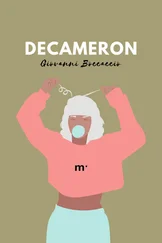Eunice greeted her four daughters in the home’s dining room, where the staff had baked her a large birthday cake. Frances Kay’s plane ticket was paid for by her eldest sister Patricia. (All of Eunice’s daughters had flown in.) Frances Kay was especially happy to see her sisters. It had been quite some time since they had all been together, and this was a good thing for another reason: Frances Kay had a proposal to make — something that she had been thinking about ever since Irv Miller first mentioned it.
Infomercials .
According to Irv, infomercials were where it was at, baby. Everybody was doing them. Even he had been offered the chance to pitch the new Flowbee Vacuum Haircutting System, though he was forced to turn the offer down because the concept of using the family vacuum cleaner to trim hair unsettled him. “But late-night infomercials are the way to go, darling. You could do a Christmas album with your sisters and sell it in time for the holidays. You need to get something new out there, something that will put a little dough-re-mi into your pocket, darling. A little? Who am I kidding? You’ll make a mint! And you can get yourself and that verkakta-hipped daughter of yours into a much nicer place. The Oleander Arms — it ain’t for you, darling! You got life in you yet. And such a voice! I hear that voice through the wall when you’re singing in the shower or sitting on your commode, and hand-to-God, it’s just like an angel came all the way down from Heaven just to take a shit in your bathroom.”
The four sisters and their Nellie Bly of a mother ate cake and shared it with some of Eunice’s fellow residents. No one recognized Eunice’s daughters as the world-famous Ludden Sisters; the disguises, made up of various wigs and funny eyeglasses, seemed to be working. After everyone had wandered away and given the Luddens some privacy, Frances Kay made her move. She explained infomercials, though her sisters had seen them and had a fairly good idea of what they were. She reminded Patricia and Janet and the “baby” Brenda how many people still remembered them and loved them, and how much their fans especially enjoyed the old Christmas shows. Frances Kay was exactly right — Augie’s special holiday broadcasts had been ratings gold for CBS. Because of the sisters’ popularity, each of the new, original carols they sang on the air shot straight to the top of the charts and quickly earned prominent placement in the holiday canon: “Bless this House on Christmas Day,” “Santa and the Manger,” and “Merii Kurisumasu,” which the sisters performed in kimonos fringed with bright silver tinsel. A comical offering in the early ’60s, “Uncle Bob Ain’t a Masher Tonight, ’Cuz There’s Mistletoe Overhead,” was covered by Eartha Kitt, Annette Funicello, Michele Lee, Bobby Rydell, and the Brothers Four.
“It certainly isn’t the worst idea in the world, Frances Kay,” said Patricia, who was looked up to by her sisters as the voice of wisdom and authority for the foursome, “but we’re all retired. I don’t think any of us has time to do a new album, let alone try to sell it at two o’clock in the morning. Who’s watching television at two in the morning anyway?”
“I’ve seen them,” said Janet, who was wearing a particolored clown wig. “Sometimes, when I can’t sleep. And remember, Patricia: when it’s two o’clock on the East Coast, it’s only eleven o’clock in Sun City, California.”
“Our fans go to bed at eight,” deadpanned Brenda.
“She’s right about that,” added Mrs. Ludden. “By nine, everybody in this place is fast asleep. Even the nurses. Excuse me for a moment, girls — there’s a male orderly at the other end of the room throwing Mr. Rothman into his wheelchair as if he were a sack of potatoes. I must document.”
Mrs. Ludden left. Her four daughters grew quiet. Frances Kay, sensing resistance to her idea, kept her eyes on her half-eaten wedge of birthday cake, not moving her fork.
Janet sighed. “Although, it would be a kick for all of our fans.”
Frances Kay looked up and nodded.
Brenda and Patricia nodded too. Their hearts went out to their sister Frances Kay. All of the sisters were close and it was a hard thing to be cruel to the one who had been the least blessed among them.
Finally, Brenda said, “I serve on the board of an orphanage in New Haven. So many unwanted children, and so, so many of them foundlings. Fetal alcohol preemies. Crack babies. My heart breaks in two every time I have to go there. Let’s say we do this holiday infomercial. What if—” Her face brightened. “What if during the infomercial we were each to hold one of these sad little babies in our arms?”
“You want each of us to hold a crack baby while we’re trying to sell our Christmas album?” asked Patricia, not quite understanding.
“Well, I thought we might sing to them. Most babies like to be sung to, even at-risk ghetto infants.”
“You do have a point, Brenda,” said Janet, nodding with interest. “What would you want us to do — just hold the babies while we sing or should we rock them in our arms and serenade them like we were singing them a lullaby?”
“We’ll work all that out,” said Frances Kay excitedly.
Janet bunched up her lips and thought for a moment. “I’m wondering, though — crack babies — they aren’t always shriveled-looking and heart-tugging, are they? If we want to tug a little more on our customers’ heartstrings, I think the way to go would be babies with congenital defects — visual ones like harelips and prolapsed eyelids, that are easy to see without having to go in too close with the camera.”
“What is it you girls are cooking up now?” asked Mrs. Ludden, who was writing on a little pad: Tyrell threw Mr. Rothman into his wheelchair with unnecessary force. Check for bruises tomorrow .
Janet answered for her sisters: “Frances Kay is very serious about this new Christmas album idea and selling it through an infomercial. And now Brenda wants us all to hold special-needs babies in our arms as we’re singing carols. Which carols do you think the little deformed babies would like, Brenda?”
“‘Have Yourself a Merry Little Christmas’ would be nice. It’s about having a nice Christmas even in the midst of troubles. For example, let’s say you’re a baby born without legs or you have Down syndrome or something. You can still have a merry Christmas if the fates allow.”
Patricia hummed a few bars of “Have Yourself a Merry Little Christmas” as she pondered what her sister had just said. Then she said, “You can’t have just one Down syndrome baby in a setting like that. It pulls focus from the other babies. They should probably all be severely retarded, don’t you think?”
“Is there a special way to hold a retarded baby?” asked Eunice. “It’s been so long since I’ve held one that I’ve forgotten.”
“When did you ever hold a retarded baby, Mama?” asked Frances Kay.
“Many years ago. Before any of you were born.”
“What was the occasion?” asked Patricia.
“The occasion? Well, what was the occasion? Let me think about that.”
“Anyway…” said Janet, attempting to put the discussion back on track.
“No, I’d really like to know, Mama,” interrupted Patricia.
“It isn’t important,” said Mrs. Ludden in a quiet, hedging voice. Then Eunice Ludden amended what she’d just said. “Well, of course it’s important. And I’ve kept this from you girls long enough. The little retarded girl was your oldest sister.”
Absolute silence greeted this announcement. All that could be heard in the room was the sound of two cooks in the kitchen off the dining room rattling their pots under the running sink faucet, and Mrs. Malloy being harshly berated by one of the nurses for having accidentally knocked her juice glass on the floor. Such a thing would have ordinarily sprung Eunice, crusading investigator of nursing home mischief, into action, but now she just sat, looking at each of her daughters with significant solemnity.
Читать дальше












